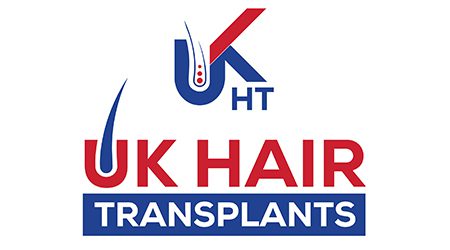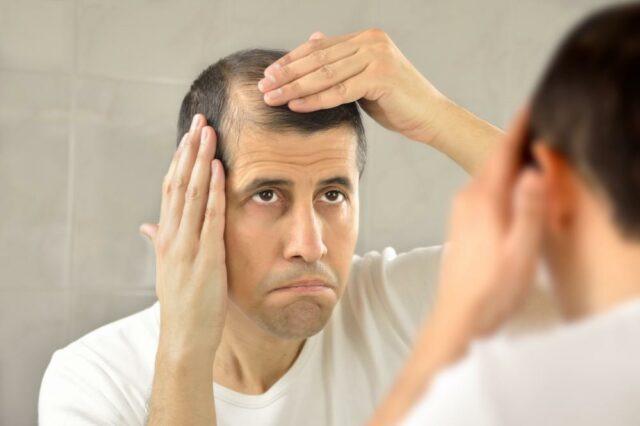Thinking about embarking on the journey to fuller hair with a hair transplant in London? It’s a decision many consider, but understanding post-procedure care is crucial. Ensuring a smooth recovery is just as important as the procedure itself. This article will guide you through the essential steps you’ll need to take.
As you dive into this guide, you’ll discover expert tips on recovery, ensuring that your investment in your appearance pays off with lasting results. Whether you’re just curious or ready to take action, understanding the process can help ease your mind and prepare you for what comes next.
What are the key post-procedure care steps recommended by UK Hair Transplants?
Embarking on your hair restoration journey requires diligent aftercare to ensure the best results.
- After undergoing a hair transplant in London, one of the most crucial steps is to follow the specific washing instructions provided by your surgeon. Typically, patients are advised to wait a few days before gently washing their hair with a mild shampoo. This helps to avoid disturbing the newly transplanted follicles and promotes optimal healing.
- It is important to avoid direct sunlight on your scalp for at least a few weeks following the procedure. Wearing a loose-fitting hat when outdoors can protect from harmful UV rays, which can affect the healing process and potentially damage the grafts.
- Refrain from engaging in strenuous activities or exercises that could cause excessive sweating for at least a week after your hair transplant. Sweating can increase the risk of infection and may interfere with the healing of the grafts.
- Sleeping with your head elevated for the first few nights can help reduce swelling around the transplant area. Using an extra pillow or a recliner chair can be beneficial in maintaining this position comfortably.
- Avoid smoking and alcohol consumption during the initial recovery period, as these can impair blood circulation and slow down the healing process. Maintaining a healthy lifestyle will support quicker recovery and better results.
- It’s essential to follow any prescribed medication regimen, including antibiotics or anti-inflammatory drugs, as directed by your hair transplant specialist. These medications help prevent infection and manage any discomfort you may experience.
- Be patient with the hair growth process. It is normal for the transplanted hair to fall out within the first few weeks, a phase known as ‘shock loss’. New hair growth typically begins within three to four months, with full results visible after a year.
- Regular follow-up appointments with your hair transplant clinic are vital to monitor your progress and address any concerns. Your surgeon can provide personalised advice and adjustments to your care routine as needed.
How does the recovery timeline differ for patients undergoing hair transplants in London?
The recovery timeline for hair transplant patients in London can vary based on several factors, including the specific technique used, the individual’s health, and the expertise of the clinic. Generally, the most common techniques are Follicular Unit Extraction (FUE) and Follicular Unit Transplantation (FUT), each with its recovery nuances.
For FUE, which is minimally invasive, patients often experience a quicker recovery. Most individuals can return to their normal routine within a few days, although it is advised to avoid strenuous activities for at least a week. The small, dot-like scars heal rapidly, and any redness or swelling typically subsides within a week.
In contrast, FUT involves a linear incision, which may require a slightly longer recovery period. Patients might need to take a week off work to allow the incision to heal properly. The sutures are usually removed after 10-14 days, and care must be taken to avoid putting tension on the scar area.
Regardless of the technique, the initial few days post-procedure are crucial. Patients should follow their surgeon’s advice meticulously, which often includes keeping the scalp clean, avoiding direct sunlight, and refraining from touching or scratching the transplanted area.
After the first week, most patients notice the transplanted hairs begin to shed, which is a normal part of the process. New hair growth typically starts around three to four months post-surgery, with significant improvements visible by six to nine months. Full results can be expected within 12 to 18 months.
UK Hair Tranplant, ensures that patients receive comprehensive post-operative care and guidance tailored to their specific needs, helping to optimise recovery and achieve the best possible results.
How does the recovery timeline differ for patients undergoing hair transplants in London?
One common challenge that patients face during the recovery phase after a hair transplant is managing the initial discomfort and swelling. It is normal for the scalp to feel tender, and some patients may experience swelling around the forehead and eyes. This can be alleviated with prescribed medications and by following the surgeon’s advice on keeping the head elevated.
Itching is another frequent issue that patients encounter as the scalp begins to heal. While it is a sign of recovery, it can be quite bothersome. Patients are advised to avoid scratching the transplanted area to prevent dislodging grafts. Using a recommended moisturising spray or lotion can help soothe the itchiness.
Scabbing and crust formation around the transplanted follicles is a natural part of the healing process, but it can be aesthetically concerning for some patients. These scabs typically fall off within a week or two. Gentle washing as per the surgeon’s instructions can help manage this aspect of recovery.
Patients often worry about the shedding of transplanted hair, known as ‘shock loss’, which usually occurs within the first few weeks post-surgery. This is a normal phase where the transplanted hair falls out before new growth begins. Understanding this process can help alleviate concerns about the success of the transplant.
Adhering to activity restrictions can be challenging for some patients, especially those with active lifestyles. It is crucial to avoid strenuous activities and exercise for the initial weeks to prevent increased blood flow to the scalp, which can affect graft survival.
Another challenge is maintaining patience during the recovery period. Hair growth is a gradual process, and it can take several months before noticeable results are seen. Patients need to manage their expectations and understand that full results can take up to a year to manifest.
Ensuring proper aftercare can be daunting, as it involves following a specific regimen of hair washing, avoiding direct sun exposure, and refraining from using certain hair products. Patients must be diligent in adhering to these guidelines to ensure optimal healing and growth.
How does the climate or lifestyle in London affect post-procedure care and recovery?
The climate in London, characterised by its temperate maritime conditions, can influence the post-procedure care and recovery of hair transplant patients. The city’s relatively mild temperatures and moderate humidity levels are generally favourable for healing, as extreme weather conditions can exacerbate scalp irritation or dryness. However, patients should still be mindful of sudden weather changes, such as unexpected rain or wind, which could affect the transplanted area.
London’s frequent rainfall necessitates precautions to protect the scalp from getting wet, especially in the initial days following the procedure. Patients are advised to wear loose-fitting hats or carry umbrellas to shield the scalp, as moisture can increase the risk of infection or disrupt the grafts before they have adequately settled.
The urban lifestyle in London, often characterised by high levels of stress and a fast-paced environment, can also impact recovery. Stress is known to affect the body’s healing processes, potentially prolonging recovery time. Patients are encouraged to incorporate stress-reducing activities, such as yoga or meditation, into their routines to promote optimal healing.
Air pollution, a common issue in metropolitan areas like London, can pose additional challenges for hair transplant recovery. Pollutants may irritate the sensitive scalp, so patients should consider spending time in cleaner air environments or using air purifiers at home. Regular cleansing of the scalp, as advised by a healthcare professional, is crucial to remove any potential irritants.
The social and cultural lifestyle in London, with its vibrant nightlife and social gatherings, may tempt patients to resume normal activities too soon. It’s important to follow medical advice regarding physical activity and exposure to crowded places, as these can increase the risk of injury to the scalp or infection. Patients should prioritise rest and gradual reintegration into their usual routines.
London’s healthcare infrastructure provides access to a wealth of resources and specialists, which can be advantageous for post-procedure care. Patients are encouraged to maintain regular follow-up appointments with their hair transplant specialists to monitor progress and address any concerns promptly. This access to expert guidance can significantly enhance the recovery experience.
Discover expert post-procedure care and recovery tips with London’s trusted hair transplant specialists. Learn more about our personalised approach, ensuring you achieve the best results possible. Visit UK Hair Transplants for all your Hair Transplant London needs.


